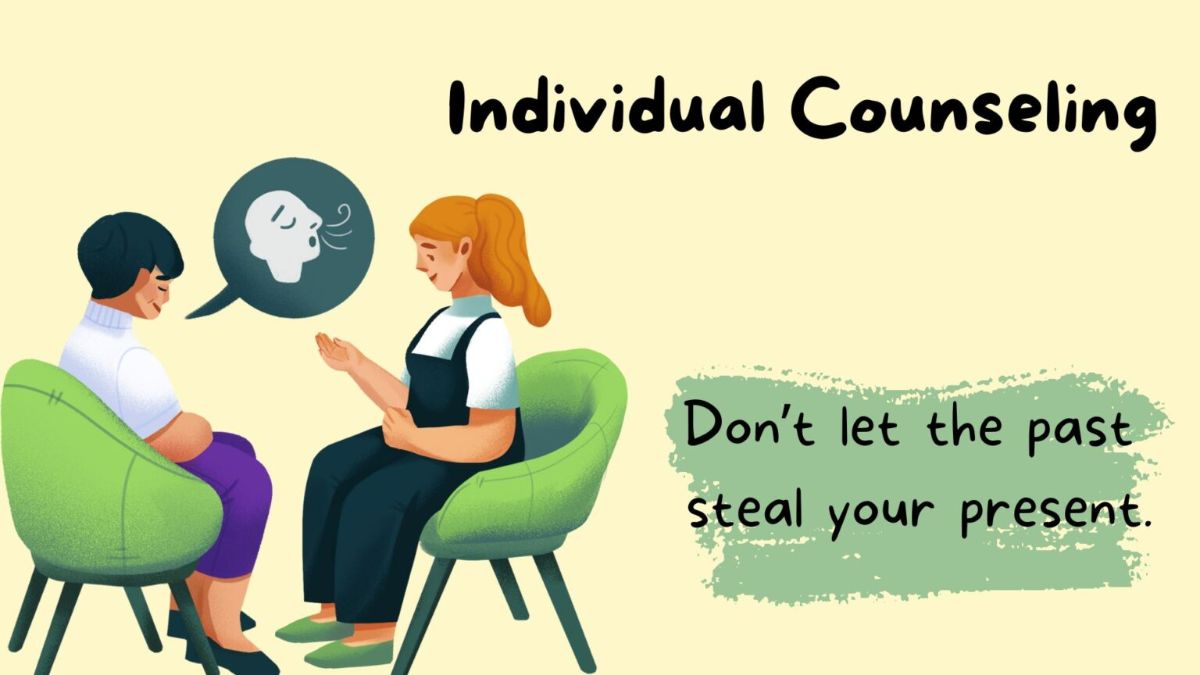Discovering the life-changing benefits of Individual Counselling Services for teenagers
Wiki Article
Discovering the Advantages of Psychological Treatment for Adolescent Well-Being and Growth
Mental treatment plays a pivotal role in the well-being and development of young adults. Adolescence is a turbulent period noted by social and emotional obstacles. Therapy supplies an organized setting for teens to verbalize their feelings and challenge their struggles. It furnishes them with crucial devices for strength and communication. As they navigate this developmental phase, the effect of treatment can be extensive. What particular advantages can emerge from such assistance during these formative years?
Understanding the Teen Mind: Pressures and difficulties
As adolescents browse the intricacies of their developing phase, they encounter numerous challenges and pressures that can substantially affect their psychological wellness. This duration is noted by significant physical, emotional, and social changes, which can induce feelings of confusion and unpredictability. Peer impact increases, frequently resulting in a struggle for acceptance and identity. Academic expectations can create added tension, as the stress to succeed places in a significantly affordable atmosphere.The development of social media presents a brand-new layer of intricacy, where comparisons to curated online personas can exacerbate sensations of inadequacy and anxiety. These elements can cause emotional distress, including anxiety, clinical depression, and low self-esteem. Comprehending these obstacles is necessary for moms and dads, instructors, and mental wellness specialists, as it gives insight into the adolescent experience and highlights the demand for encouraging treatments to cultivate strength and health during this crucial developing phase.
Developing a Safe Area for Expression
Developing a risk-free room for expression is necessary for adolescents steering their tumultuous developmental phase. In therapeutic setups, this environment fosters open discussion, allowing teens to connect their feelings without anxiety of judgment. Such spaces enable them to explore their ideas and emotions, which is important for recognizing their identities and experiences.When teens feel protected, they are more probable to share their struggles, consisting of anxiety, anxiety, or social conflicts. This open communication can result in much deeper understandings and facilitate personal growth.
Additionally, a secure area urges creativity and self-reflection, providing teens the flexibility to reveal themselves via numerous electrical outlets, such as art or writing. Developing trust between the therapist and the adolescent is important, as it underpins the efficiency of the restorative process. Eventually, producing a secure room for expression works as a structure for psychological recovery and personal advancement during these formative years.
Developing Coping Approaches and Strength

Specialists often present techniques such as mindfulness, journaling, and problem-solving abilities, making it possible for teenagers to manage their responses better. Furthermore, by involving in role-play scenarios, they exercise just how to handle tight spots, enhancing their confidence. Over time, these abilities foster a sense of firm, outfitting teenagers with the tools to navigate life's uncertainties. The advancement of durability not only aids in getting rid of immediate difficulties however also lays the foundation for much healthier emotional feedbacks in their adult years, ultimately adding to long-lasting health.
Enhancing Interaction Skills
Reliable interaction skills are necessary for teenagers as they browse intricate social landscapes. Psychological treatment plays a vital function in boosting these skills, allowing teenagers to express their thoughts and emotions extra clearly. With assisted sessions, therapists encourage teenagers to verbalize their feelings, helping with far better understanding in peer communications and household dynamics.Furthermore, treatment supplies a secure area for practicing energetic listening, empathy, and assertiveness. These skills encourage teens to take part in significant conversations, willpower conflicts, and build more powerful relationships. As they learn to connect properly, they also acquire self-confidence in their capability to promote on their own and their needs.
Furthermore, improved communication skills add to emotional intelligence, enabling teenagers to respond and identify to the emotions of others. This alternative development promotes an encouraging atmosphere, ultimately promoting total wellness and social integration. Via psychological therapy, young adults can grow these crucial skills for a healthier social experience.
Cultivating Personal Growth and Self-Discovery
Promoting individual development and self-discovery in teens includes a diverse method that urges understanding of personal identity. This procedure additionally highlights the significance of structure strength abilities and enhancing emotional understanding. With each other, these components develop a foundation for healthier, a lot more positive people as they browse their developmental years.Understanding Individuality
How do young adults browse the complex landscape of individuality as they endeavor for self-discovery and growth? During this formative period, they grapple with various influences, including peers, family, and societal expectations. Mental treatment can function as a necessary tool, providing a safe space for exploration and reflection. Via assisted discussions, teenagers can articulate their sensations and thoughts, allowing them to recognize their ideas, values, and needs. This process fosters a much deeper understanding of their one-of-a-kind identification, equipping them to make informed choices and create a sense of purpose. As they take part in self-discovery, they discover to embrace their originality and browse obstacles with higher clarity, inevitably improving their overall health and personal development.Building Strength Skills

Enhancing Emotional Awareness
Enhancing emotional recognition is critical for young adults navigating the complexities of adolescence, as it allows them to recognize and comprehend their feelings better. By participating in mental therapy, teens discover to recognize their psychological feedbacks and the triggers behind them. This process cultivates personal development and self-discovery, enabling them to articulate their feelings and handle obstacles much more adeptly. As teenagers establish emotional understanding, they cultivate compassion, improve partnerships, and improve interaction skills. In addition, this increased awareness aids in decision-making, aiding them navigate public opinions and create a sense of identification. Ultimately, cultivating emotional understanding via therapy can bring about healthier coping systems and a more balanced emotion, basic for flourishing throughout these developmental years.Building Healthy Relationships and Assistance Systems
While passing through the intricacies of adolescence, developing healthy and balanced relationships and assistance systems is important for young adults. These links offer psychological security and a feeling of belonging, crucial during this developing phase. Favorable connections with peers, family members, and mentors can improve self-confidence and strength, enabling teenagers to navigate obstacles extra efficiently.Mental treatment plays a crucial role in promoting these connections by furnishing teens with interaction and conflict-resolution abilities. Via treatment, they find out to share their feelings, understand different point of views, and develop limits, which are essential for keeping healthy and balanced interactions.
Additionally, helpful networks urge teenagers to look for aid when needed, reducing seclusion and promoting mental wellness. They are much more most likely to engage in constructive habits and make notified choices when teens feel linked to their support systems (Individual Counselling Toronto). On the whole, the farming of healthy and balanced relationships and support group is instrumental in advertising teen well-being and personal development
Often Asked Inquiries
Just how Do I Find a Competent Specialist for My Young adult?
To locate a qualified therapist for a teenager, one must look for referrals from healthcare carriers, study qualifications online, check reviews, and ascertain the therapist specializes in adolescent issues, fostering a supportive environment for growth.What Are the Costs Related To Mental Treatment for Teenagers?
The prices connected with psychological treatment for teens vary extensively, typically varying from $50 to $250 per session. Insurance policy coverage, gliding range costs, and local sources can affect cost and access for households seeking assistance.
Just How Commonly Should Teenagers Go To Therapy Procedure?
Teens ought to preferably go to therapy sessions once a week or biweekly, relying on private needs. Constant sessions can foster a secure area for expression, while allowing specialists to keep track of development and adjust approaches successfully in time.Can Treatment Be Efficient for All Teens?
Treatment can be effective for lots of teens, yet private outcomes vary. Variables such as individual situations, visibility to the process, and the healing method used all influence its performance for each teenage.What Should Parents Do During Their Young adult's Therapy Refine?
Parents ought to proactively support their teen's treatment process by preserving open interaction, respecting privacy, participating in sessions if invited, and urging their child's efforts (Individual Therapy For Teens). Comprehending and perseverance are vital as teenagers browse their individual growth Individual Teen Counselling journeyMental therapy plays an essential duty in the well-being and growth of teenagers. By engaging in mental treatment, adolescents find out to identify their psychological actions and the triggers behind them. Psychological treatment plays a crucial role in promoting these relationships by furnishing teens with interaction and conflict-resolution abilities. Young adults need to preferably participate in treatment sessions once a week or biweekly, depending on specific demands. Moms and dads need to proactively sustain their teen's treatment process by keeping open communication, appreciating privacy, attending sessions if invited, and encouraging their child's initiatives.
Report this wiki page